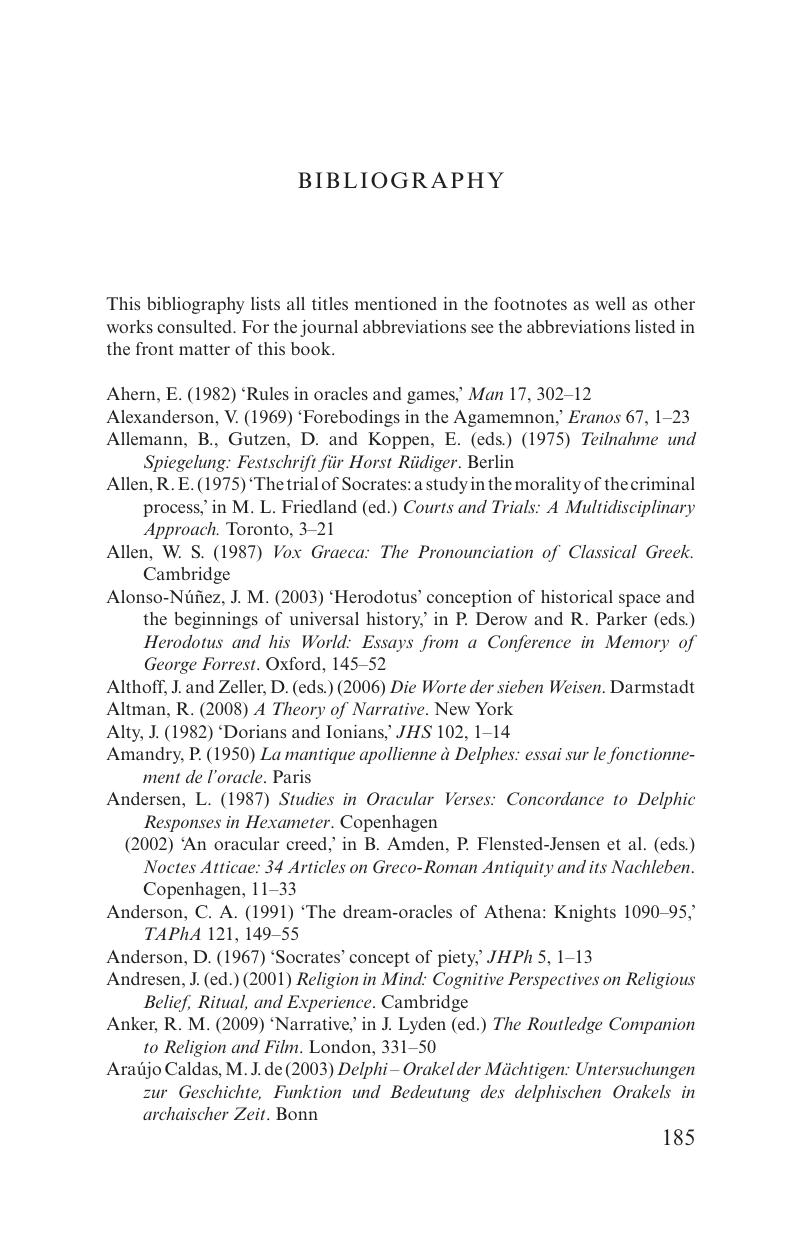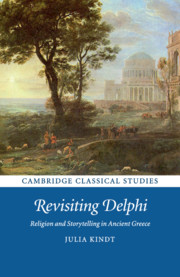Book contents
- Frontmatter
- Dedication
- Contents
- List of Illustration
- Acknowledgements
- List of Abbreviations
- 1 Introduction: Revisiting Delphi
- 2 Herodotus: Delphi, Oracles and Storytelling in the Histories
- 3 Euripides: Ironic Readings of Apollo and his Prophecies
- 4 Plato: Socrates, or Invoking the Oracle as a Witness
- 5 Pausanias: What's the Stuff of Divinity?
- 6 Athenaeus: Encountering the Divine in Word and Wood
- 7 Conclusion: Religion and Storytelling in Ancient Greece
- Appendix: Plutarch – A Philosophical Enquiry into an Enigmatic Divine Sign
- Bibliography
- Index
- References
Bibliography
Published online by Cambridge University Press: 05 September 2016
- Frontmatter
- Dedication
- Contents
- List of Illustration
- Acknowledgements
- List of Abbreviations
- 1 Introduction: Revisiting Delphi
- 2 Herodotus: Delphi, Oracles and Storytelling in the Histories
- 3 Euripides: Ironic Readings of Apollo and his Prophecies
- 4 Plato: Socrates, or Invoking the Oracle as a Witness
- 5 Pausanias: What's the Stuff of Divinity?
- 6 Athenaeus: Encountering the Divine in Word and Wood
- 7 Conclusion: Religion and Storytelling in Ancient Greece
- Appendix: Plutarch – A Philosophical Enquiry into an Enigmatic Divine Sign
- Bibliography
- Index
- References
Summary

- Type
- Chapter
- Information
- Revisiting DelphiReligion and Storytelling in Ancient Greece, pp. 185 - 210Publisher: Cambridge University PressPrint publication year: 2016



